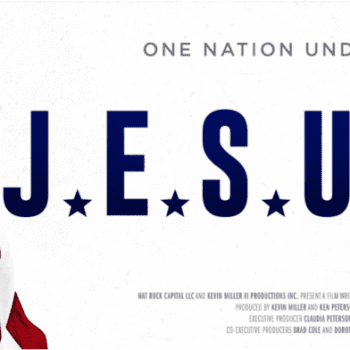
Sgt. Bowe Bergdahl is free from the Taliban, but his freedom comes at high cost. That cost reveals America at our worst. The United States is in a sacrificial crisis and we can do better. Indeed, we need to do better because our greatest threat is not an outside enemy, be it the Taliban or Russia; our greatest threat is ourselves.
Hours after President Obama declared the release of Sgt. Bergdahl, rumors and accusations began to swirl.
Bergdahl left his post! Five soldiers were killed trying to find him! The prisoner swap makes the US more vulnerable to attacks! Obama broke the law by not going to Congress first!
It is impossible to separate fact from fiction about the details this early in the story. And frankly, I’m not interested in the political facts or fiction behind the Bowe Bergdahl case. When it comes to political facts and fiction, no one is objective, especially when it comes to emotions high. Facts will be skewed to fit one’s perspective, and accusations will be tossed about with emotional fervor.
When something gets politicized it turns into a sacrificial crisis. What does that mean? Politics is all about winning and losing, which means knowing whom to blame so that we aren’t blamed. America is in a sacrificial crisis because everyone is looking for someone to blame. We are amidst a frenzy of rumors and accusations all attempting to find someone to blame, someone to be our scapegoat. Once the finger of accusation is pointed against an individual, those accusations are deflected by more finger pointing. Who’s the bad guy? Is it Bergdahl? The President? The Taliban? And how dare Congress even question the President for saving a soldiers life! America leaves no soldier behind!
How do we stop a sacrificial crisis? It is impossible to answer that question from within the sacrificial system that is fueled by accusations and blame. But the answer is obvious. The only way to stop a sacrificial crisis is to stop fueling the sacrificial system, to stop blaming and accusing.
Ahh, but we do still love a good sacrifice, don’t we? We love to know who the bad guy is, so that we can know that we are the good guys, out for justice and peace.
The problem is that accusations and blame don’t lead to justice and peace; they only lead to more accusation and blame.
The violence of accusation and blame is the greatest threat facing the United States; indeed, it’s the greatest threat facing humanity. The US blames the Taliban and the Taliban blames the US. The Christians blame the Muslims and the Muslims blame the Christians. The English blame the French and the French blame the English. Adam blamed Eve and Eve blamed the serpent. The Bible reveals that if we continue the cycle of blame, humanity will destroy itself with apocalyptic violence of our own making.
After Adam and Eve demonstrated the universal truth of humanity’s tendency to blame, it didn’t take long for the tragic outcome to be revealed. Cain killed his brother Abel. Blame leads to murder, which leads to blame and murder, until we have a flood of violence and the earth is destroyed.
And so we must abandon our addiction to blame and to violence. Blame and violence are a distraction from what truly matters; from the only thing that can save us. After he killed his brother, God went to Cain and asked “Where is your brother Abel?” Cain responded with the most famous rhetorical question in human history, “Am I my brother’s keeper?”
Yes. The only way to stop our worldwide sacrificial crisis is to become our brother’s and sister’s keeper. Who is my brother and my sister? Just remember in the flurry of blame and accusation: Bowe Bergdal is your brother. The American military is composed of your brothers and sisters. Barack Obama is your brother. John Boehner is your brother. Sarah Palin is your sister. The Taliban is your brother. Your annoying co-worker is your sister. Your crazy uncle is your brother.
How do you care for your brother or your sister? The answer depends on circumstances, but refusing to play the blame game is a good place to start. Once we stop the cycle of blame new ways of relating begin to emerge. Without blame, these new relationships are formed in the spirit of compassion and care for those who become the victim of culture’s scapegoating mechanism.
America is at our best when we stop the cycle of blame and become the keeper of our brothers and sisters. It’s as simple as this: Blame leads to death. Compassion leads to life. This is the biblical choice of life and death. Which will we choose?











